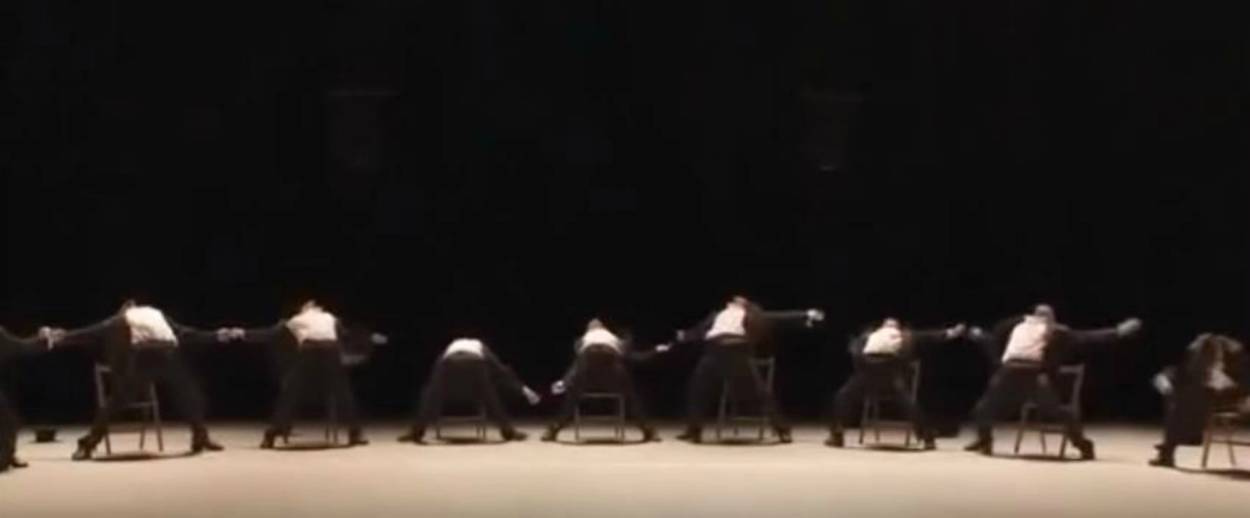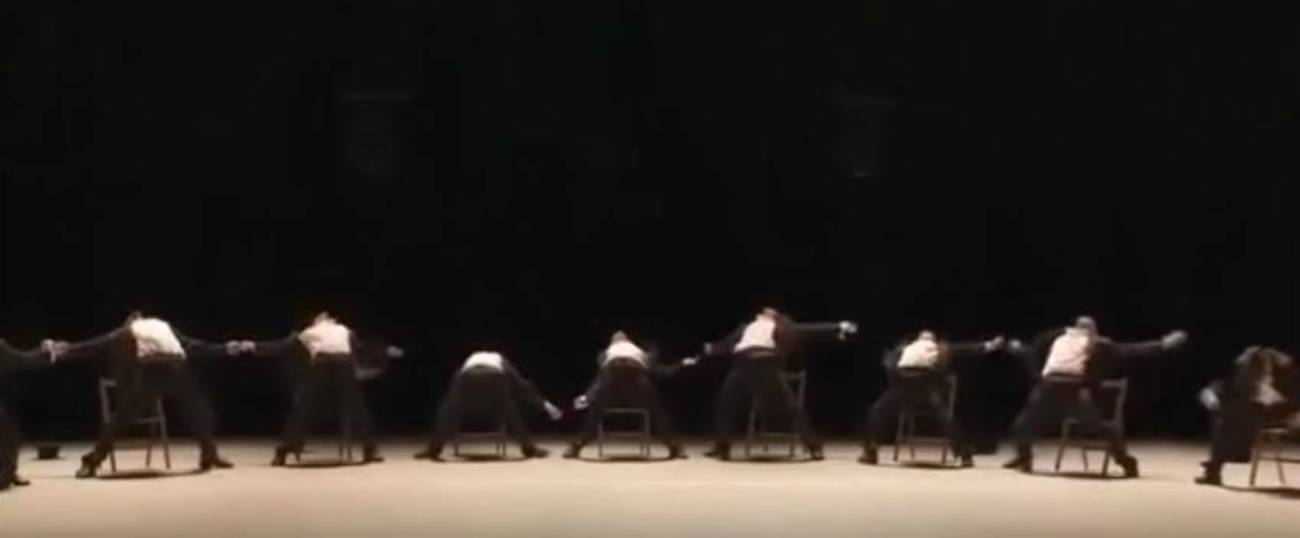WATCH: Head of Batsheva Dance Company Calls Out Bad Faith of Boycotters of Israeli Artists
‘If boycotting my company can help the Palestinian people, I would boycott my own show’




This week, British musician and composer Brian Eno told Israel’s preeminent dance troupe, the Batsheva Dance Company, to stop using his music. Eno has backed boycotting the Jewish state since 2006—when the Israeli left was in power and making peace offers to the Palestinians—so this wasn’t exactly surprising. Batsheva is currently on tour in Italy, on a trip made possible in part by funding from the Israeli government, which like that of many countries provides support for local artists. It was this funding which drew Eno’s ire, though he has never voiced any objection to government funding of artists from any non-Jewish state, no matter how repressive.
Yesterday, on a panel at the TorinoDanza festival in Turin, Batsheva’s longtime artistic director Ohad Naharin addressed the controversy in a brief statement that drew applause from the audience. “I often say that if boycotting my company can help the Palestinian people, I would boycott my own show, and the day we’ll have a peace treaty with the Palestinians will be the happiest day of my life.” he said. “I’m sad because this is so useless, such a useless act.” Naharin closed by calling for everyone assembled to “think about better ways to help the Palestinian cause.” Watch Naharin’s full response below:
Israel and its predominantly leftist artistic community are consistently subject to hypocritical treatment from critics overseas. On the one hand, when Israeli politicians make populist noises about restricting funding for artists critical of government policy, they get slammed from abroad. But when the Israeli government does fund artists who are critical of its policy, like Naharin and Batsheva, those artists are boycotted.
This treatment makes little sense if the goal is to encourage and reinforce good Israeli behavior. But it makes a lot of sense if the goal is simply to punish and vilify Israelis, irrespective of their conduct. The Boycott, Divestment and Sanctions movement against Israel, of which Eno is a part, typically purports to seek the former, while doing the latter in practice. In this way, BDS bolsters rejectionists on the Israeli right who insist that Israel is hated not for its particular policies, but for its very existence, which means there is little point in altering those policies.
Naharin’s moving testimony and passion for peace slices through the bad faith of the boycotters. It exposes how they feel threatened rather than energized by Israelis who seek a non-zero-sum solution to the Israeli-Palestinian conflict, which is why they seek to silence them. As J.K. Rowling, Hilary Mantel, and other celebrated British luminaries put it last year in a letter opposing boycotts like Eno’s:
Cultural boycotts singling out Israel are divisive and discriminatory, and will not further peace. Open dialogue and interaction promote greater understanding and mutual acceptance, and it is through such understanding and acceptance that movement can be made towards a resolution of the conflict…
Cultural engagement builds bridges, nurtures freedom and positive movement for change. We wholly endorse encouraging such a powerful tool for change rather than boycotting its use.
Previous: The Eno Paradox: Genius Musician, Nauseating BDS Leader
J.K. Rowling and Other British Luminaries Denounce Cultural Boycott of Israel
Yair Rosenberg is a senior writer at Tablet. Subscribe to his newsletter, listen to his music, and follow him on Twitter and Facebook.